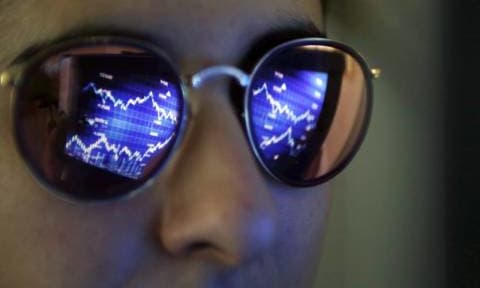What are they smoking? Analyst fees under scrutiny as EU rules loom: thinktank
By Huw Jones
LONDON (Reuters) - Banks charging thousands of pounds for top analyst briefings exemplify an over-expensive and opaque model of paying for stock tips that will be challenged by forthcoming European Union rules, a thinktank found on Monday.
Under EU rules coming into force in January, banks will have to itemize research and trading fees so asset managers know what they are paying for, making them more mindful about the quality of stock analysis and triggering a price war, a report from the Centre for the Study of Financial Innovation (CSFI) noted.
It was unclear how research will be priced under the EU's MiFID II regime, but some could go behind a "paywall" and not be distributed freely to the media, while the high fees charged by "rock star" analysts at banks for chats about their views may be harder to justify.
"Some are asking 4,000 to 5,000 an hour in pounds, dollars or euros for an analyst's time. What are they smoking?" CSFI quoted one asset manager as saying, while another said an hour's chat with top law firm Freshfields was better value at 1,500 pounds.
The report said an over-supply of research, and asset managers' desire to cut costs, will spark a price war in the short term.
"Incomplete pricing information and imperfect ways to assess value are causing anxiety about predatory pricing and unfair competition," the report, authored by CSFI co-director Jane Fuller, said.
Over time a more normal market for research should emerge, allowing asset managers to weigh up price versus quality. But in the meantime the environment would be harsh.
Banks are shedding analysts to restore profitability, asset managers face criticisms for fees they charge investors, and many investors increasingly favor "passive" investing or tracking an index, rather than taking active bets on selected stocks.
Most industry participants interviewed by CSFI expect asset managers to spend less on research in the next year or two because they are under pressure to absorb the cost. One estimate is for a 25 percent to 30 percent drop in the number of analysts at banks, the report said.
While there is disagreement over how chaotic the next year or two will be, capacity needs to be cut before the market can stabilize and grow again, the report said.
Losers could be "closet tracker" funds that mimic benchmarks but charge higher fees than passive funds.
Independent research firms could be among the winners if they can demonstrate their worth to asset managers, the report said, though The European Association of Independent Research Providers (Euro IRP), which helped fund the CSFI report, said the playing field in research may not be level for some time.
(Reporting by Huw Jones; Editing by David Holmes)
